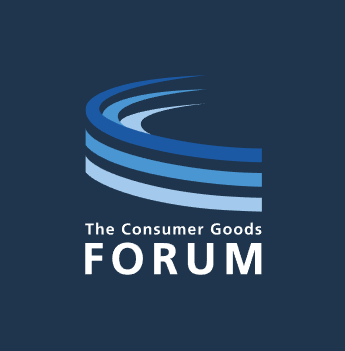Everyone Deserves Access to Healthy Food. So Why Is So Much of It Going to Waste?
By: Sharon Bligh, Director, Healthier Lives, The Consumer Goods Forum & Ignacio Gavilan, Director, Environmental Sustainability
At our recent Sustainable Retail Summit, the topics of food systems and healthy diets converged quite frequently, with many panellists pointing out where and how these two concepts overlap. Before this year’s SRS, we already knew that our global food systems are in serious need of repair. An estimated one-third of food produced for human consumption each year never reaches consumers, amounting to about 1.3 billion tonnes of food, while at the same time, an estimated 690 million people went hungry in 2019, or about one-in-nine people. That’s an estimated increase of 10 million people from 2018, and by nearly 60 million in five years, according to the UN’s State of Food Security and Nutrition report, published earlier this year. The connection between nutrition and food loss and waste is also the focus of the recently published report on the Future of Food Systems by the Global Panel on Agriculture and Food Systems for Nutrition, which provides policy solutions to improve the quality of diets using a food systems approach.
From our respective positions as Directors of Healthier Lives and Environmental Sustainability at the CGF, it was clear from the many sessions at SRS where food was in the spotlight that our industry understands how fixing our food systems has to be a critical global focus if we are to achieve the Sustainable Development Goals (SDGs) by 2030. That means we must work to improve the nutritional quality of food and increase access to it, while simultaneously reducing the loss of edible food and the environmental impact of food production. The ongoing Covid-19 has also highlighted the need for both resilient and adaptable supply chains, given that the pandemic has impacted food security worldwide.
As a result, with only 10 years left to meet the SDGs, building sustainable food systems needs to be one of our top priorities in 2021 and beyond. With the CGF’s CEO-led Coalitions of Action, we’re helping the consumer goods industry take the bold steps needed to accelerate progress towards those Goals now.
With our Collaboration for Healthier Lives Coalition of Action we are working on increasing the availability, access, affordability and desirability of healthier food, and our members understand the role they play in driving healthier and sustainable choices for consumers. With our local CHL initiatives, we are working as a collective with stakeholders to explore, experiment and innovate business models that support healthier and more sustainable baskets. In the UK, for example, retailers and manufacturers have trialled interventions in the past year in-stores (i.e. pricing and promotions, shelf labelling, positioning, etc.) to help make healthier food choices more accessible to customers.
Meanwhile, our Food Waste Coalition of Action has been prioritising three key elements of supply chain management and transformation to help members halve food loss in their supply chains: proper food waste management and reporting procedures, expanded supply chain mobilisation on the issue, and critical engagement at post-harvest level, where 30 percent of food is lost. Moreover, the Coalition has partnered with the likes of WRAP, the World Resources Institute and the Champions 12.3 network, of which CGF Managing Director Wai-Chan Chan is a Champion, to help align members on these complex but critical tasks. These are not necessarily actions that are visible to the consumer, but their impact on food systems will be very real by ensuring less food goes to waste in supply chains—particularly fresh foods, as a recent study by CGF members in Argentina found—so more food can make it to consumers’ plates.
Collaboration and collective action are essential to overcome the challenges around food that we face: as a global issue, it requires a global response. As UN Secretary-General António Guterres remarked, “It is unacceptable that hunger is on the rise at a time when the world wastes more than 1 billion tonnes of food every year. … As a human family, a world free of hunger is our imperative.”
With this call to action in mind, the CGF is looking forward to supporting the UN’s first-ever annual Food Systems Summit next year. Wai-Chan has already committed to mobilising networks, sharing information, and taking action to support the Summit by becoming a Food Systems Champion, and I (Sharon) also became an official member of Action track 1, led by our partners at the Global Alliance for Improved Nutrition (GAIN), which focuses on ensuring access to safe and nutritious food for all.
Ahead of this Summit, we were delighted to speak with the UN Secretary-General’s Special Envoy to the Summit, Dr Agnes Kalibata, during a session on Health and Sustainability at this year’s SRS, which also happened to take place on World Food Day. Dr Kalibata addressed CGF members with a clear call to action to support the Summit, highlighting that the consumer goods industry has a key role to play, with their brands reaching billions of people every day.
Though we lead different Coalitions at the CGF, we join Dr Kalibata in this call, recognising that CGF members’ efforts in both the health and sustainability fields are helping drive positive changes within our food systems. We hold a shared ambition to see a world that is able to produce enough healthy food for all while protecting the planet and providing sustainable employment. With 2030 rapidly approaching, and visible impacts of our unsustainable food systems all around us, these actions are more critical than ever. We have no time—or food—left to waste.



